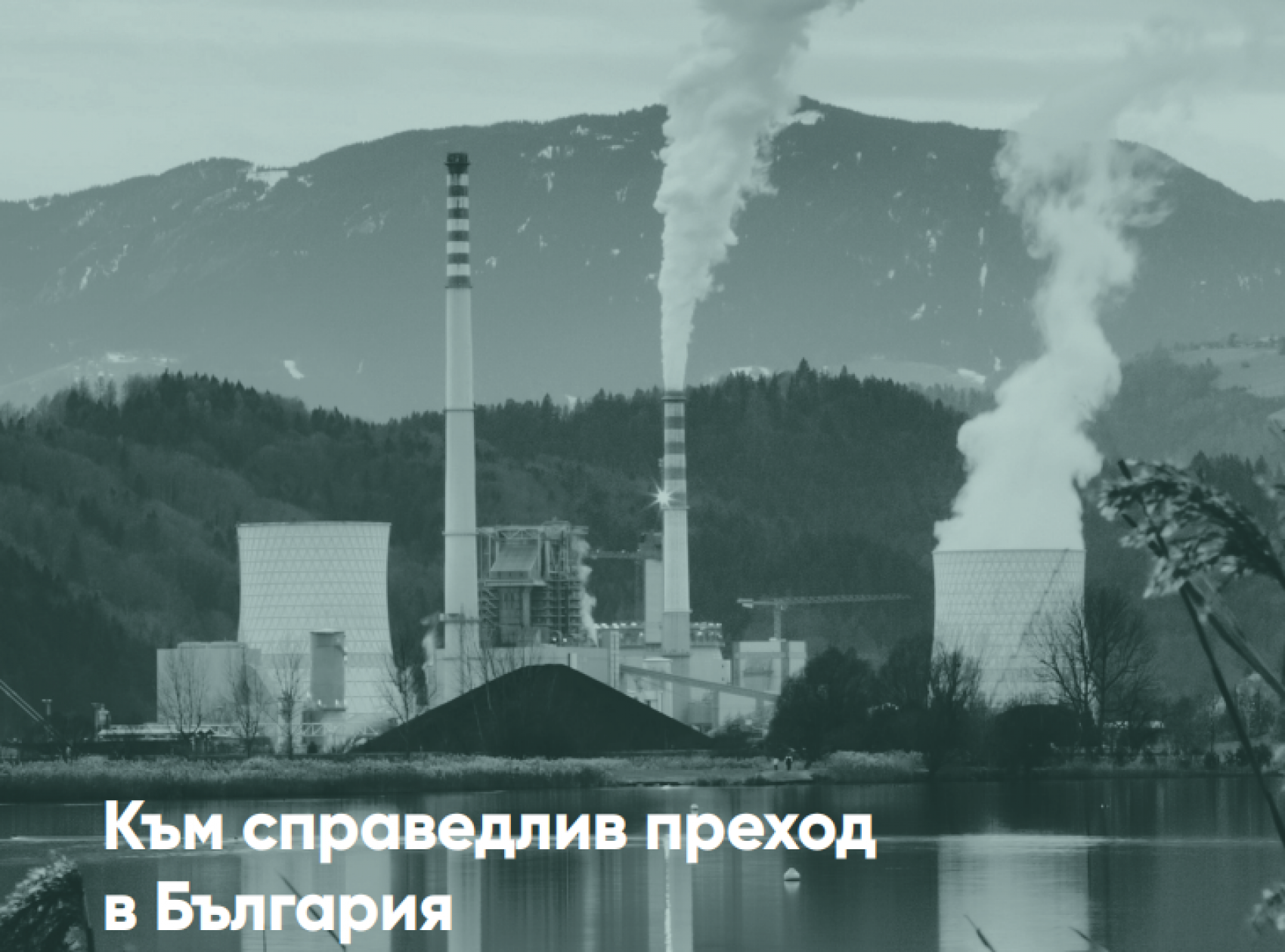Bulgaria will lose at least BGN 1 billion if it does not complete the plans for a just transition by mid-2023
The Bulgarian government continues to postpone the just transition in Bulgaria`s vulnerable regions despite the readiness of business and the initiative of civil society to impose models of sustainable development beyond coal, says a report of the Center for the Study of Democracy sent to the media. The projects of the Territorial plans for a just transition do not offer a clear long-term vision and specific goals for the transformation of the economy of the coal regions of Bulgaria according to their needs, givens and potential for development. Thus, Bulgaria is currently the only country in the EU without approved strategic documents and without allocated funds under the Just Transition Mechanism of the European Union. By refusing to commit to the decarbonization of the coal regions, Bulgaria misses the opportunity to get on the last train for long-term transformation of the economy. These are part of the conclusions of the public discussions organized by the Center for the Study of Democracy on February 14 and 20, 2023, in Pernik, Kyustendil and Stara Zagora. Over 120 representatives of various interested parties such as mayors, members of municipal councils, local business associations, non-governmental organizations, scientists and citizens participated in the round tables, who discussed specific ideas, solutions and project proposals for inclusion in more ambitious Territorial plans with clear objectives to reduce the negative impacts of the coal transition on the economic development of vulnerable regions. During the discussions, an analysis of the current versions of the Territorial Plans, developed by the Center, was presented, which is based on a detailed examination of the proposed measures and the feedback on the depth and quality of the involvement of the interested parties in the process. Maria Trifonova, Senior Research Fellow in the Center`s Energy and Climate Program, summarized that for the transition to be just, the economies of the coal regions need to impose new business models for development that make local enterprises profitable in the long term in low-carbon conditions. transition. Good examples from other countries in Europe show that successful transformation happens where new energy solutions and technologies are combined in established industries. Territorial plans can also create economic instruments to attract private investment and accelerate the transformation process of key sectors. Transformation is taking place in the coal regions, but without or with partial assistance The speakers in the discussion in the city of Pernik united around the thesis that Territorial plans should lay the foundations for a coordinated approach to retraining and development of regional business. The Deputy Mayor of the city of Pernik, Stefan Krastev, stated that the Pernik region has the necessary prerequisites to become an independent economic center, creating jobs in the production of clean and high-tech energy. In the discussion in the town of Kyustendil, the emphasis fell on ideas for the development of young people in the region, who are leaving en masse in search of better academic and professional development in Sofia and abroad. The mayor of Kyustendil municipality, Petar Paunov, provided a list of over 30 project ideas with a focus on the development of tourism and small and medium-sized enterprises in the region, which could be included in the updated Territorial Plan of the district. For his part, Radostin Tanev, deputy mayor of the Stara Zagora municipality, emphasized that the delay of the Territorial Plans would reduce industrial competitiveness and the successful transformation of the largest coal region in the country. The unanimous opinion from the discussion in Stara Zagora was that there are already promising initiatives for the production of green hydrogen in the region, and the region will be included among the 9 hydrogen valleys of Europe - a concept for the development of the EU hydrogen industry. As the main obstacle to the transformation of the regional economy in Stara Zagora, the lack of sufficient dialogue and cooperation between universities, specialized high schools and businesses, so as to introduce the study of low-carbon technologies and the easier integration of graduates and students in enterprises focusing on green innovation enforcement. Participants were united in their criticism of the government`s inaction. This has led not only to the loss of the first tranche of the European funds for a just transition of almost BGN 200 million at the end of 2022. But it will also lead to the real possibility of losing more than BGN 1 billion if by the middle of this year Bulgaria do not prepare Territorial Plans. They must meet the European framework and regulations for the clear integration of large-scale measures to reduce the carbon footprint, as well as the active involvement of stakeholders in the formation and implementation of the set goals. The Bulgarian government should outline intermediate, annual goals and indicators for reducing greenhouse emissions, lowering energy consumption, increasing the share of RES in energy consumption and improving air quality. The Center for the Study of Democracy will step on the dozens of collected opinions and proposals for measures and initiatives to develop alternative regional profiles of Pernik, Kyustendil and Stara Zagora, which will outline the main approach for transformation and decarbonization of the coal regions.
Източник: 3e-news.net

КОМЕНТАРИ





